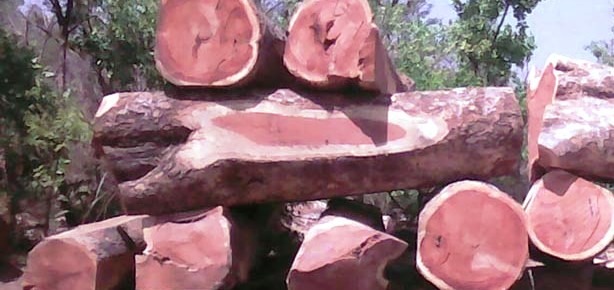Local authorities in South Sudan’s Yei River State and Uganda’s West Nile districts have agreed to ban illegal forest logging and trading along their common border areas.
The latest move, officials said, is part of efforts to fight against the dangers of climate change as well as environmental degradation.
Last week, senior political and security officials from Yei River State counties of Kupera, Morobo, Lujulo and Kajo-Keji met their counterparts from Uganda’s West Nile districts of Moyo, Yumbe, Arua and Koboko to discuss ways of ending illegal forest logging.
Isaac Kayooya, the Koboko resident district commissioner, told Radio Tamazuj on Monday that security monitoring team from Uganda and South Sudan has been formed to control illegal forest logging in both regions.
He said any person caught dealing in illegally logged timber will be considered a criminal and a threat to environmental conservation.
“We have instituted an operational force to arrest those dealing in illegal logging and we have instructed our security agencies not to allow any illegal logging along the common borders. We have also agreed with our counterparts from South Sudan to tighten our security at the borders so that those with illegal documents are arrested and dealt with according to the court,” said Kayooya.
He added, “We are serious on the matter of regional environmental threats and any one violating that will be our enemy number one”.
On his part, Yei River State governor, Emmanuel Adil said armed groups operating along common borders were a threat to the fight against environmental degradation in Uganda and South Sudan.
He vowed to put more effort in the fight against illegal forest logging.
“We share a common border with Uganda and we have people from both sides interacting for socio-economic activities. As leaders, we need to serve our peoples better. What is very important is that we have rolled out our security plan to deal with this illegal business and we will deal with these illegal individuals. Once arrested, we will treat them as criminals and they will be brought to book,” said Adil.
Last year, an investigative report from Africa Uncensored exposed how the lumbering of teak wood in South Sudan is evidence that the country’s civil war has turned into a fight for natural resources.




